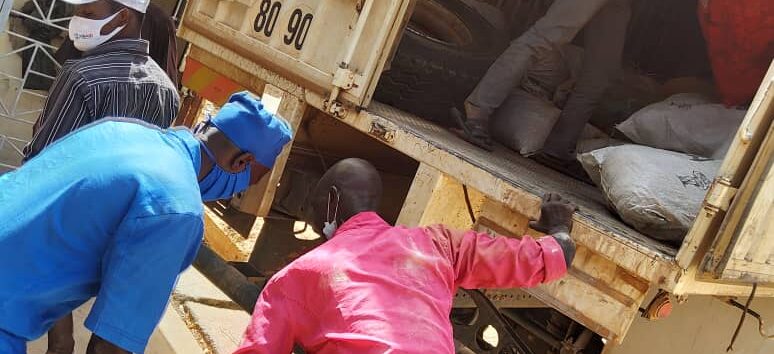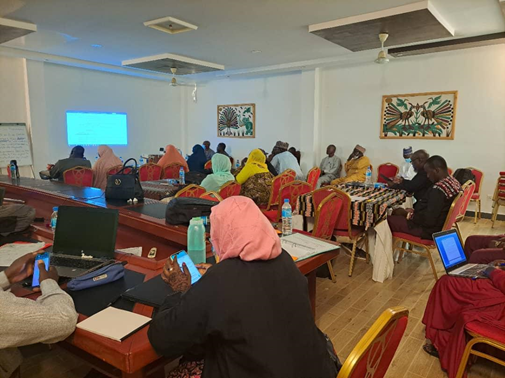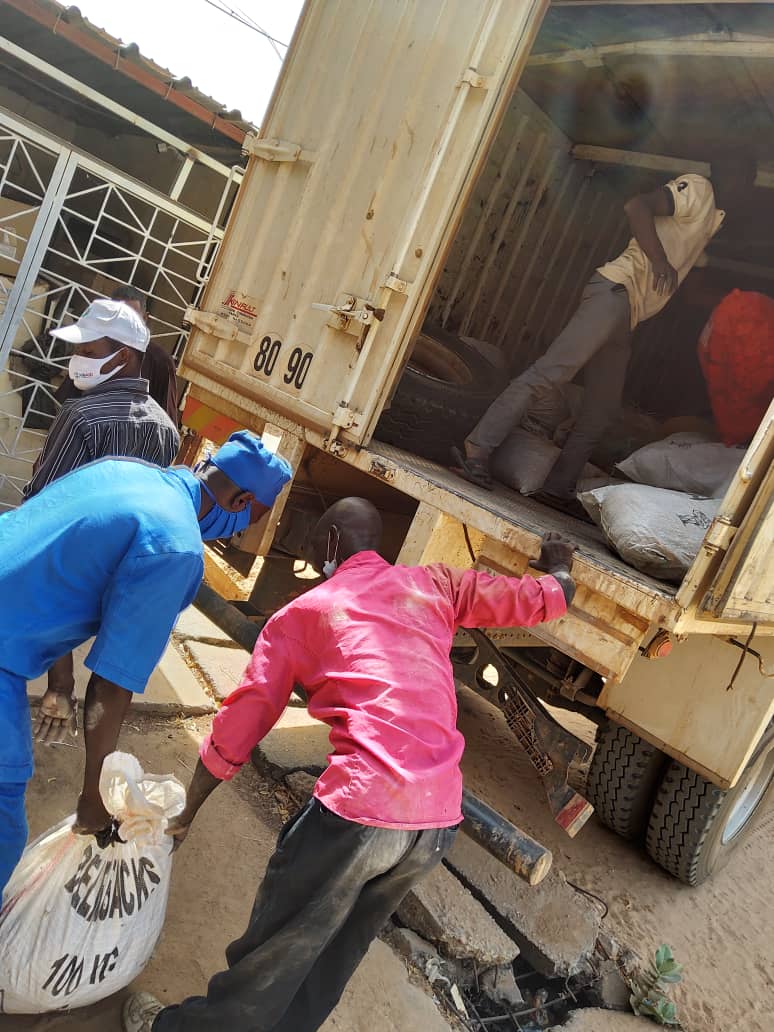The Way Forward: Coordinating Waste Management Efforts in Niger
Published on March 9, 2023

By Wendy Prosser, Senior Technical Officer and Maggie Hurley, Knowledge Management and Communications Program Officer, MOMENTUM Routine Immunization Transformation and Equity
Every year, an estimated 16 billion vaccine injections are administered worldwide, and an additional 12.8 billion doses have been administered in response to the COVID-19 pandemic. As countries focused on the immediate task of securing and ensuring the quality of COVID-19 vaccines and personal protective equipment, less attention and fewer resources were devoted to the safe and sustainable management of health care waste. Tens of thousands of tons of extra medical waste from the pandemic response have put tremendous strain on health care waste management systems, including the handling of used syringes, storing and removing safety boxes, recording needle stick injuries, storing and removing used vaccine packaging, managing the waste storage area, and disposing of waste on site.
Failure to handle waste properly can expose health workers to needle stick injuries, burns, and pathogens. According to the WHO, it also has consequences for communities living near poorly managed landfills and disposal sites, including contaminated air from burning waste, poor water quality, and disease-carrying animals. These adverse health and environmental threats reveal an urgent need to improve waste management practices.

In Niger, there have long been standing guidelines on waste management, but they were vague and disjointed. Without clear, standardized procedures, waste management occurred in an ad hoc way. Clear operational guidelines are key to managing waste on both user and facility levels. In September 2022, the MOMENTUM Routine Immunization Transformation and Equity project conducted a workshop in Dosso for those working in waste management to clarify and coordinate roles, responsibilities, and guidelines, including standard operating procedures (SOPs), moving forward.
The workshop was organized by the Niger Direction of Immunization (DI), and attendees included representatives from the Directorates of Public Hygiene and Environmental Health, Waste Management, and Pharmacy. Two members of the DI logistics team with extensive experience in waste management facilitated the discussions.
“COVID-19 produces a lot of waste and Niger is really in need of a process to destroy waste. The country had guidelines, but there were too many guidelines, which was confusing. People disposed of waste as they wished. These standard operating procedures will allow people to go to one place for guidance.”
-Abdoulaye Brah Bouzou, MOMENTUM Routine Immunization Transformation and Equity Supply Chain and Planning Advisor
Despite their intersecting roles in waste management, the Directorates of Public Hygiene and Pharmacy had not previously coordinated efforts to clarify their roles in waste disposal. This workshop was the first to convene them to work on SOPs and determine their respective responsibilities from an environmental standpoint. They agreed that the Directorate of Public Hygiene would dispose of general waste (e.g., syringes) and the Directorate of Pharmacy would dispose of chemical waste (e.g., vaccines, open vials).
 Over the course of the two-day workshop, attendees from the various departments within the Ministry of Health reviewed, discussed, amended, and approved Niger’s waste management SOPs, initially drafted by MOMENTUM, which drew on global guidelines and adapted them to Niger’s context. The new guidelines provide a clear process for health system users and facilities to manage health care waste.
Over the course of the two-day workshop, attendees from the various departments within the Ministry of Health reviewed, discussed, amended, and approved Niger’s waste management SOPs, initially drafted by MOMENTUM, which drew on global guidelines and adapted them to Niger’s context. The new guidelines provide a clear process for health system users and facilities to manage health care waste.
“The elaboration and validation of an SOP document on waste management is a big step and fills a big gap in this field. We simply hope that the different actors will [apply] the content of this document in order to contribute to the environmentally sustainable management of waste in our country,” said Boubacar Goubokoye, Officer of Public Hygiene Division, Direction of Public Hygiene and Environmental Health.
Waste is now collected, sorted, and stored according to the new SOPs. These procedures improve data management related to the quantification of waste, and they protect human and environmental health and hygiene.

